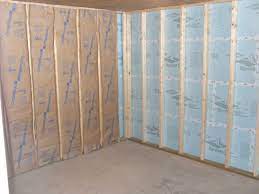Your home’s basement is most vulnerable to water damage. Water could enter your basement due to various reasons- heavy rainfall, plumbing leakage, pipe burst, excessive humidity, seepage, or drainage overflow. Water damage is a serious issue because if water seeps in through cracks in the foundation, it impacts your home’s structural integrity. It also leads to moisture buildup and condensation which results in mold growth and even negatively affects your heating and cooling system. The basement is surrounded by soil that absorbs rainwater or melted snow. When the soil starts releasing this water, it could enter the basement through cracks. Multiple risk factors make water damage a common issue for basements. The major causes of a wet basement include poor drainage system, incorrectly installed or damaged gutters, improper slope, cracks in the basement, hydrostatic pressure, flood, or condensation. If you ignore fixing a wet basement, it results in other issues such as toxic mold growth, peeling paint, building rot, termite damage, and even foundation collapse. So, what to do to solve the wet basement problem?
Basement Waterproofing
Many homeowners live with a damp and musty basement because they think there’s nothing they can do to prevent water damage. It is true that water easily finds its way to enter your home. However, waterproofing is the best solution to keep your basement dry by preventing the entry of water. So, if you’re looking to resolve the issue of wet basement Toronto, here are some reasons to consider waterproofing.
1. Prevent Flooding
For homes located in flood-prone areas, basement waterproofing is imperative. Flooding poses a serious threat to the basement because it is located below ground level. It is a widespread natural disaster that causes serious structural damage. Waterproofing prepares your basement to handle water influx that could ruin your space. A professional can waterproof the foundation which helps in keeping water away from your home.
2. Prevent Mold and Mildew
Moisture is responsible for mold growth. Mold and mildew thrive in a wet basement. Even if you don’t live in a flood-prone region, your basement is still at risk of water damage. Snow or rain can lead to moisture buildup that results in mold and mildew growth. Mold spores can cause health issues such as coughing, and skin irritation, or trigger allergies and asthma. Waterproofing helps in eliminating moisture and reduces the risk of mold. As a result, you get a safe and healthy living environment.
3. Reduce Energy Costs
Wt basement increases humidity level that puts pressure on the heating and cooling system. Waterproofing dries out the basement, as well as repairs cracks in your foundation that allows entry of cold waves or hot wind during winter and summer. Waterproofing insulates your space, making heating and cooling more efficient and reducing energy costs. Besides reducing energy bills, it also reduces the cost of insurance.
4. Prevent Structural Damage
When water seeps through the foundation, it causes significant structural damage. It impacts joints and edges of the flooring and walls. Water damage leads to foundation cracks, buckling of the walls, floor sinking, and more damage. Repairing all these issues can be expensive. However, waterproofing can reduce the risk of structural damage while increasing the value of your property.



